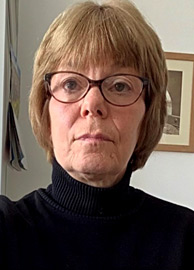
Dr Jenny Cann, Quality Manager at the UK Quality Assurance Agency
Transnational Education (TNE) has become a gateway for students worldwide to earn internationally accredited qualifications without leaving the familiarity of their home countries. In South Asia, particularly Sri Lanka, TNE is transforming the higher education landscape by providing the growing middle class with access to prestigious global universities. Recognizing its potential, the British Council in Sri Lanka has actively collaborated with local authorities, policymakers, and leading international institutions to uphold high standards in TNE delivery in the country. Through these efforts, Sri Lanka continues to strengthen its position as a hub for quality global education opportunities in the region.
Statistics reveal that Sri Lanka ranks as the second-largest market for UK Transnational Education (TNE), with around 54,000 students enrolled. Given the significant number of students and private institutions engaged in TNE, maintaining high educational standards is of utmost importance to ensure a valuable learning experience for students and peace of mind for parents.
The British Council in Sri Lanka, in collaboration with Times Higher Education, conducted an in-depth study on the island nation’s TNE sector last year. This research aimed to provide a clear overview of the operational landscape and quality assurance mechanisms currently in place. The findings revealed that Sri Lanka is the second-largest host for UK TNE and the fastest-growing among the top ten host nations. Additionally, the study identified both opportunities and challenges for students and institutions, offering valuable insights to help government agencies and education providers make informed decisions. A key takeaway from the research was the need to enhance the quality assurance framework for UK TNE in Sri Lanka.
In keeping with this need to focus on quality of TNE, Dr Jenny Cann – Quality Manager of the Quality Assurance Agency for Higher Education (QAA) in UK was recently in Sri Lanka to impart her knowledge about good practices of quality assurance in TNE from around the world, build awareness of quality assurance in TNE, and obtain a better understanding of what approaches and mechanisms have been successful or not in Sri Lanka.Dr Cann is a former Associate Dean (Quality) at University of Bedfordshire now working part-time for QAA, a world-leading quality agency providing impartial regulatory and collaborative quality assurance and enhancement.
Dr Cannobserved thatseveral challenges need to be addressed to enhance the effectiveness of TNE in Sri Lanka. One key issue is the general public’s perception of TNE, as some of the Sri Lankan providers may not maintain the same global standards and quality assurance as the majority, thereby negatively impacting the sector’s reputation. Therefore, it is important to support smaller institutions through training and workshops to help improve and maintain the overall quality.Another concern is the lack of a centralized register for TNE partnerships in Sri Lanka. Unlike the UK, where such records exist, Sri Lanka does not have a formal mechanism to track approved TNE providers and their foreign partnerships. Establishing such a centralized national registry would undoubtedly enhance transparency and accountability and instil confidence in the standard of TNE in Sri Lanka among the public.Additionally, since Sri Lankan state universities are currently not engaged in TNE, encouraging them to explore research collaborations and other partnerships could provide a new avenue to gain mutual benefits and contribute to academic and institutional growth in the country.
She also highlighted the presence of several untapped opportunities in TNE that could benefit Sri Lanka. One key area is the introduction of new academic disciplines, particularly in artistic fields such as filmmaking and creative arts, which are not traditionally offered by Sri Lankan universities. A recent British Council report highlighted the growing demand for these subjects, and expanding access to such degrees could create new career pathways for students. Additionally, collaborations with various industries could present another significant opportunity. TNE programs are often designed to align with employment market needs, and in some countries, major international companies have sponsored state-of-the-art lab equipment to enhance student learning. A similar approach in Sri Lanka – where businesses partner with educational institutions to provide resources, facilities, or infrastructure – could greatly improve academic quality and employability prospects of graduates. Therefore, exploring such strategic partnerships could position Sri Lanka as a leader in innovative education and workforce development.
Dr Cann concluded by conveying her optimism about the continued success of TNE and claimed it can be further strengthened by actively promoting its positive impacts and the high quality of education it delivers. Both providers and external stakeholders should take a closer look at TNE’s quality standards, with alumni serving as prime examples of its effectiveness through their successful careers in various fields. These individuals embody the success of TNE programmes and act as role models for future students. Additionally, it would be beneficial for UK providers to expand TNE into new subject areas and regions, leveraging their expertise to further enrich the local education landscape. Another opportunity could be the establishment of branch campuses, fostering mutual learning between the UK and Sri Lanka. Finally, state universities should consider engaging with TNE, particularly in areas such as postgraduate and doctoral collaborations, which could lead to further academic and professional development.




